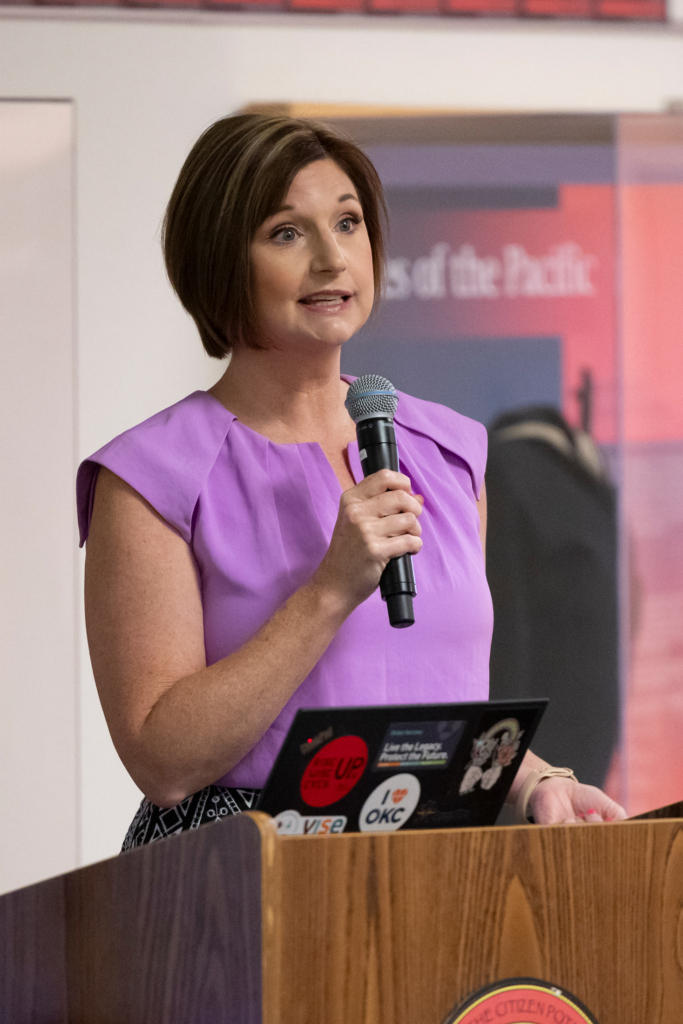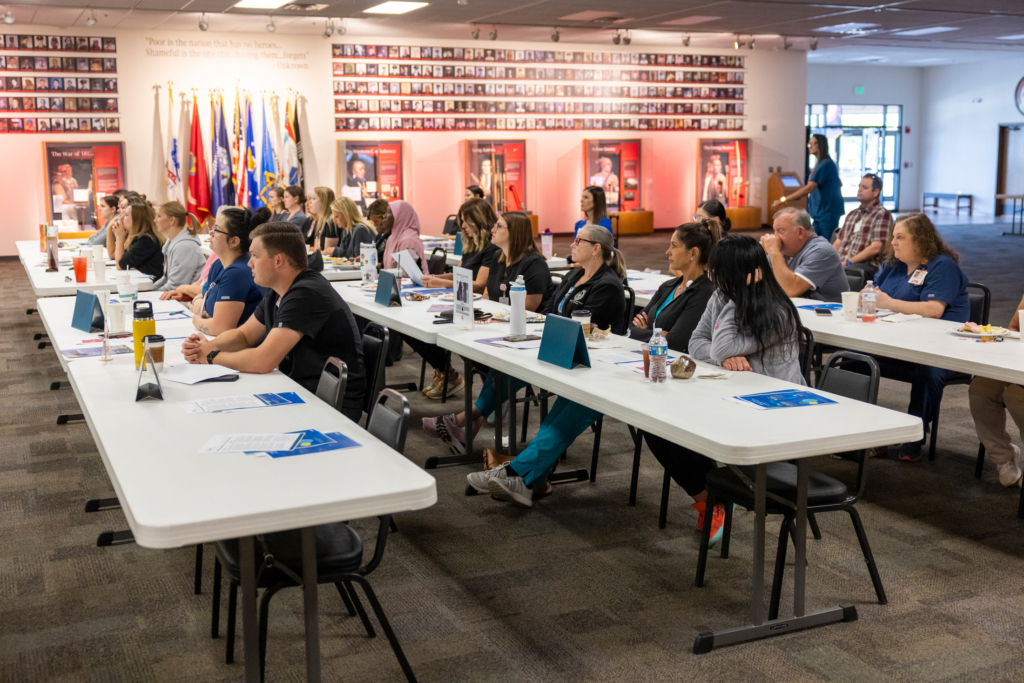Citizen Potawatomi Nation led a training session about the HPV vaccination July 19 in the Cultural Heritage Center Long Room.

Learning about HPV
Dr. Savannah Stumph, Merck’s regional medical director for the South Central United States, presented statistics and information about the HPV vaccine to CPN healthcare workers in the morning session.
“The HPV vaccine is cancer prevention,” Stumph told attendees. “The HPV vaccine is for anyone with skin, because that is who is at risk of contracting the virus. It’s not a matter of who, it’s a matter of when. Four out of every five people will contract the virus in their lifetime.”
The majority of those who contract it may never know, Stumph said, because they have a healthy immune response that causes the virus to clear out over a period of two to three years. However, there is no way of knowing who can do that and who can’t, and for those who can’t, it turns into a persistent HPV infection that can lead to risk for pre-cancers and cancers.
HPV risk for men
While HPV has been known for causing cervical cancer in women, Stumph emphasized that it also causes oropharyngeal cancer (cancers of the head and neck) in men and women. In fact, head and neck cancers have surpassed cervical cancers as the most common type of HPV cancer in the United States, and for those cancers, it affects men at a rate five times higher than that of women.
In one study Stumph cited, HPV was found in 88 percent of head and neck cancers, and of the cases within that 88 percent, 80 percent of the patients were men.
“When you think about head and neck cancers, there is no routine screening for those,” she said. “So what that means is that typically when these patients are presenting, it’s cancer. And that’s unfortunate, because really the only thing we can do to prevent these right now is the HPV vaccination.”

Hoping to raise vaccination rates
The number of individuals who have received the HPV vaccine is lower than those who have received the Tdap (Tetanus, Diphtheria and Pertussis) and Meningitis vaccines.
Stumph said that’s something they want to change because “you are way more likely to contract HPV than any other vaccine-preventable disease we have.”
Nationally, only 75.1% of teenagers age 13 to 17 have received one dose of the vaccine, and only 58.6% have completed the series.
Those numbers dip even lower for adults. For individuals between the ages of 19 and 26, only 53% of women and 26% of men have had the vaccine. For those between the ages of 27 and 45, only 16% of women and 4% of men have been vaccinated.
Stumph said part of the reason for this is that the parameters for who can get the vaccine changed in 2018, and the change was overshadowed by the COVID-19 pandemic.
It is recommended to get the vaccine early, and those between the ages of 9 and 14 who receive it typically only need two doses instead of the three required for those 15 and older.
Stumph suggested starting the conversation when a patient is 9, not just to lower the number of doses required, but also to help with some other factors that could potentially lower the vaccination rate, such as families being exposed to false information about the vaccine or the misconception that the HPV vaccine is permission for children to have sex.
“Talking about it as the age of 9 can uncouple the conversation from sex and keep the focus on cancer,” Stumph said. “Be the first person to talk about the vaccine, so you get to be the first person having that conversation.”
Stumph said it’s best to get the vaccine as early as possible, before any potential exposure to HPV, but explained that the HPV vaccine is available to all individuals between the ages of 9 and 45.
While it is most effective for those who are young, she said even those in the 27 to 45 age range — whether divorced and dating, immunocompromised, or even those who were ineligible to receive the vaccine when it first came out — might want to speak with their healthcare provider about whether they should receive the HPV vaccine.
Presentation the first in a series
Markie Carlock, LPN with CPN’s West Clinic, and Fausat Adediji, M.D., FAAP, with the West Clinic, were among those in attendance at the training.
“It reinforces a lot, just gives you a few pearls you can share,” Adediji said. “I think it was a very good presentation.”
Both agreed that it can be a challenge to get patients to put their trust in the HPV vaccine, but said the training gave them ideas for how to start that conversation.
CPN Public Health Coordinator Laney Shutler said the morning talk about the HPV vaccine is just the first of a series, with more topics to follow on a quarterly basis.
“It’s a public health education series. We’re going to be bringing in different subject matter experts to talk about things we’re seeing in our clinics,” Shutler said told attendees. “We want to make sure that you’re set up for success, that you’re comfortable in your position, and that you are safe.”
Find CPN Health Services online at cpn.news/health. Schedule a Public Health appointment by calling 405-964-5770 (West Clinic) or 405-273-5236 (East Clinic).
